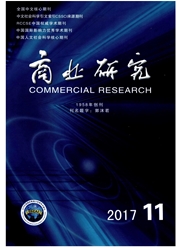

 中文摘要:
中文摘要:
以2003—2013年欧盟对华反倾销案件中135家中国厂商为样本,基于非对称二元变量关联系数和基于卡方检验的类别变量关联系数,测算了市场经济地位标准1法律判定中考量要素间的关联,根据结果分析了涉案产品上游产业国有或集体集中度、产业税收优惠、应诉厂商重要成员政治背景和股权转移对微观维度市场经济地位判定的影响。实证表明,微观维度下欧盟对华市场经济地位判定实践存在自由裁量权带来的任意性问题,微观维度的市场经济地位判定结果并非如欧盟反倾销法规所阐述的完全属于应诉厂商异质性的结果,外资和私营应诉厂商与国有和集体应诉厂商相比并非一定能获得市场经济地位。
 英文摘要:
英文摘要:
The paper statistically measures the correlation of factors influencing the MET criteria 1 test results of 135 Chinese respondent firms in 74 EU antidumping cases from 2003 to 2013 by the asymmetric bivariate correlation coefficient and chi square test nominal variable correlation coefficient. According to the measurements, the paper analyses the influence of state owned and collective concentration of upstream industries of the export products involved, industrial tax preference, political background of key personnel and holding transferring to the MET test. The result shows that the problem of arbitrary from discretion exists in the MET practical test. The MET test results of micro level are not only due to firm heterogeneity defined in EU antidumping rules. The foreign and private firms are not more favored than the stated owned and collective firms to get MET.
 同期刊论文项目
同期刊论文项目
 同项目期刊论文
同项目期刊论文
 期刊信息
期刊信息
